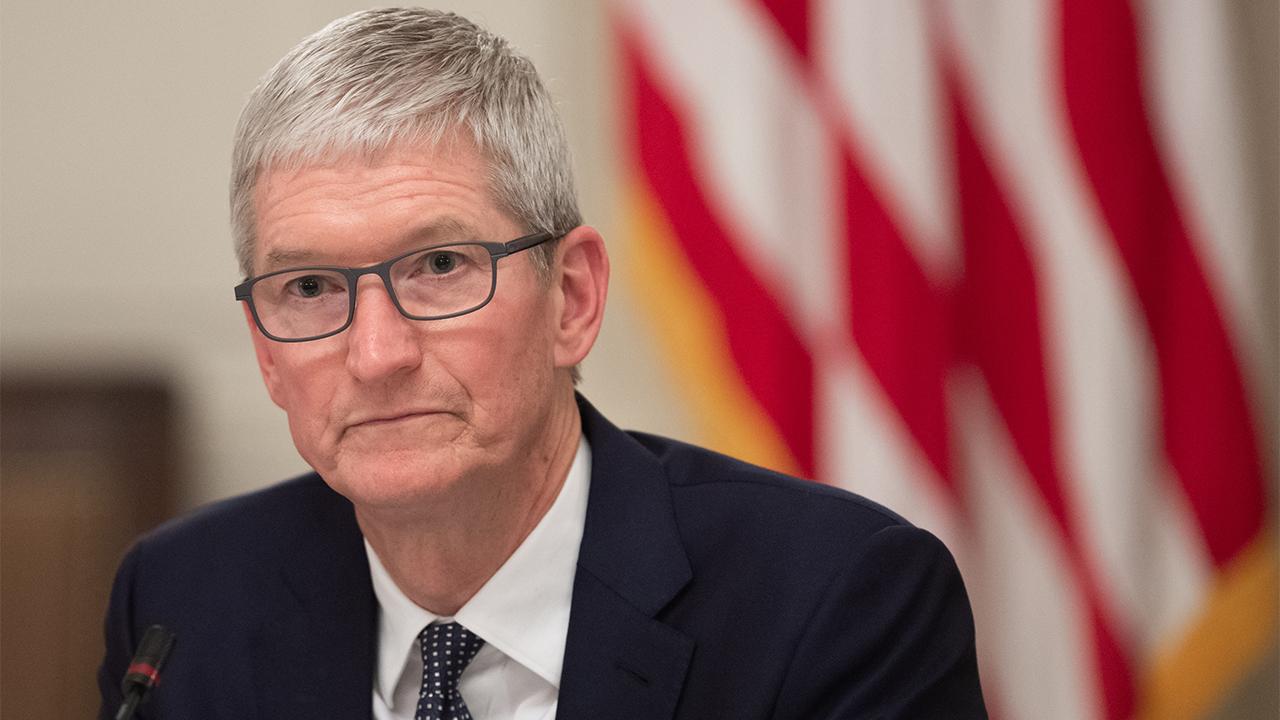Where the top 5 Democratic candidates stand on climate change
Eight presidential candidates participated in a first-of-its-kind climate change forum hosted by the Weather Channel, discussing their wide-ranging plans to address extreme weather's impact on jobs, the economy, national security.
"I have seven grandchildren," Sen. Bernie Sanders, I-Vt., said. "And I don't want to be in a position, 20 years from now, or have anybody else in that position, to have our grandchildren say to us: 'You knew what was going on.'"
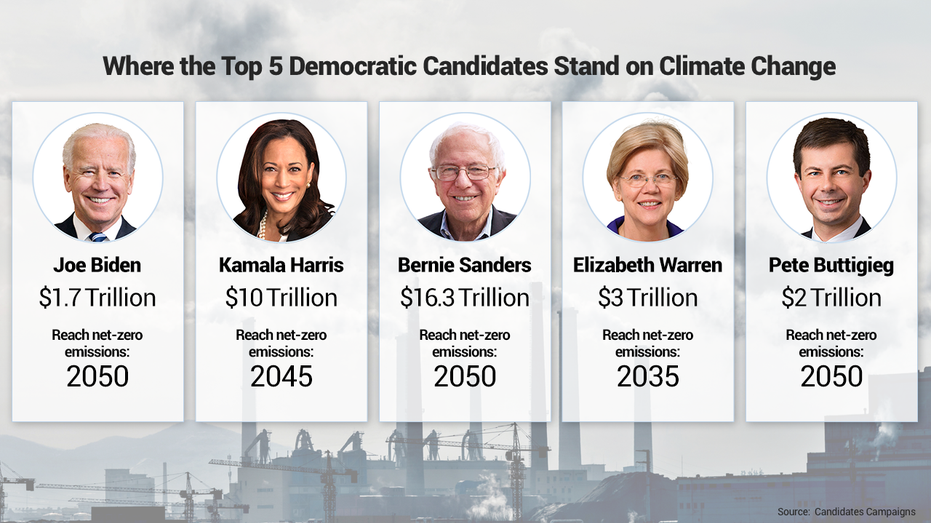
During the one-hour, pre-taped special, which aired Thursday night, the candidates — including leading Democrats Sens. Elizabeth Warren, Bernie Sanders, Cory Booker, Kamala Harris and South Bend, Ind., Mayor Pete Buttigieg; and Republican challengers to Trump, including former Illinois Rep. Joe Walsh, former Massachusetts Gov. Bill Weld and former South Carolina Gov. Mark Sanford — were interviewed about their approach to combating climate change.
GET FOX BUSINESS ON THE GO BY CLICKING HERE
Former Vice President Joe Biden did not participate in the event because of scheduling conflicts, according to his campaign. Trump declined an invitation to partake.
Take a closer look at the different proposals that top Democratic candidates plan to enact if they’re elected in 2020.
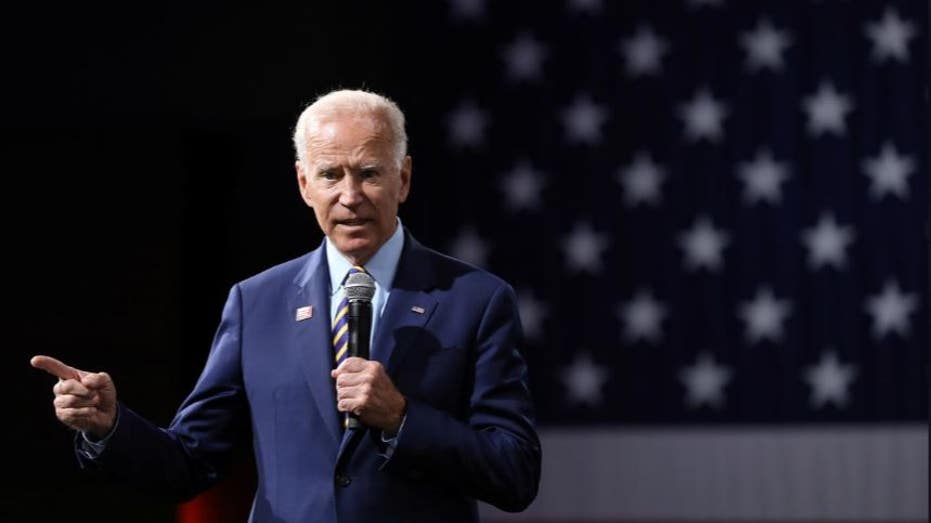
Joe Biden
At the beginning of June, Biden unveiled a climate change plan that he said would cost $1.7 trillion over a decade. It’d be funded largely by repealing the $1.5 trillion tax overhaul that Trump signed into law in 2017, reducing incentives for tax havens and ending tax breaks for the fossil fuel industry.
He vows to:
- Reach net-zero emissions “no later than 2050,” with milestone targets no later than 2025. He also set a target to reduce buildings emissions by 2035
- Rebuild the country’s infrastructure, with money going toward creating bridges, buildings, electric grid and water infrastructure that can prevent, and withstand, climate change
- Re-enter the Paris Agreement “on day one”
- Stop issuing permits for new oil and gas drilling on federal lands and waters
- Ensure that low-income and minority communities, as well as "frontline communities" exposed to pollution, have a voice in policy decisions and access to clean water
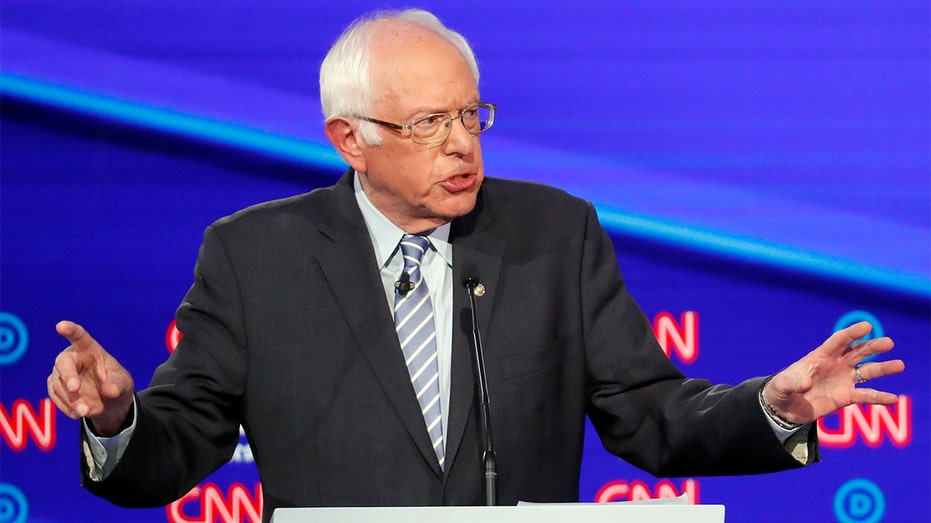
Bernie Sanders
The Vermont senator introduced his $16 trillion climate change proposal — the most ambitious yet from a presidential contender on climate change — in mid-August, calling for sweeping transformations to the country's energy system and economy. The plan built upon the Green New Deal, which was released earlier this year by New York Democratic Rep. Alexandria Ocasio-Cortez. It would be paid for by forcing the fossil fuel industry to pay for pollution via litigation, fees and taxes; eliminating federal fossil fuel subsidies; scaling back military spending and new income tax revenues from new jobs in the renewable energy industry.
He vows to:
- Reach 100 percent renewable energy for electricity and transportation no later than 2030 and go completely carbon neutral by at least 2050, by building new energy sources
- Create 20 million jobs necessary to solving the climate crisis in areas like sustainable farming, engineering and an expanded Civilian Conservation Corp.
- Provide $2.18 trillion in funding for low- and middle-income families, as well as small businesses, to weatherize and retrofit their homes and businesses
- Direct the Department of Justice to pursue criminal prosecution of the fossil fuel industry
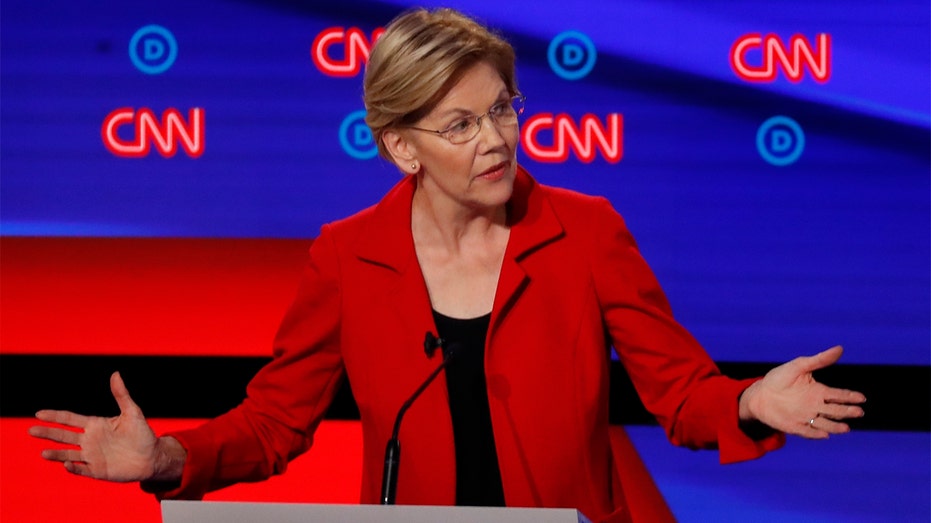
Elizabeth Warren
Warren rolled out an aggressive $3 trillion blueprint in early September to address climate change, also echoing sentiments proposed in the Green New Deal. She also explicitly adopted ideas from Washington Gov. Jay Inslee, a climate hawk who dropped out of the Democratic primary in August. Warren, like Biden, said she'd pay for the plan by repealing the Tax Cuts and Jobs Act, which slashed rates for wealthy individuals and corporations.
She vows to:
- Reach zero-carbon pollution from new commercial and residential buildings by 2028; 100 percent zero-emissions standards for all new cars, buses and light- and medium-duty trucks by 2030; and 100 percent zero-emission energy in electric generation by 2035
- Establish regulations to retire coal power within a decade, but ensure that coal communities are not left behind by funding health care and pensions for miners and shifting workers into green jobs retrofitting buildings and installing clean energy
- Create a Federal Renewable Energy Commission charged with reducing greenhouse gas pollution
- Ban fossil fuel leasing on public lands
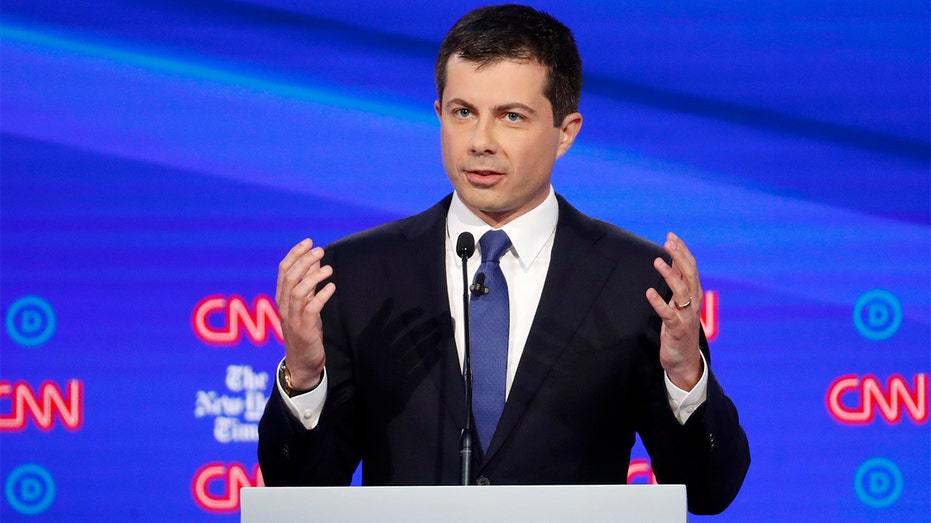
Pete Buttigieg
The South Bend, Ind., mayor rolled out a three-pronged plan that would cost somewhere between $1.5 to $2 trillion, his campaign said. The proposal would create an estimated 3 million clean energy jobs. The proposal outlined several federal investments, which would theoretically bring in trillions more in private, state and local investment.
He vows to:
- Reach net-zero emissions by 2050, including reducing emissions for heavy-duty vehicles, buses, rail, ships and aircraft by 2040 and doubling clean electricity in the U.S. by 2025
- Renew U.S. membership of the Paris climate agreement and double the nation's pledge to the Green Climate Fund
- Strengthen work protections via unions and jobs retraining with a $200 billion transaction fund for workers, like coal miners, who could lose their jobs
- Guarantee no part of the country is left behind by creating centers managed by local communities to deal with climate risks in those regions, developing farming methods that reduce greenhouse gas emissions and ensuring equitable disaster relief
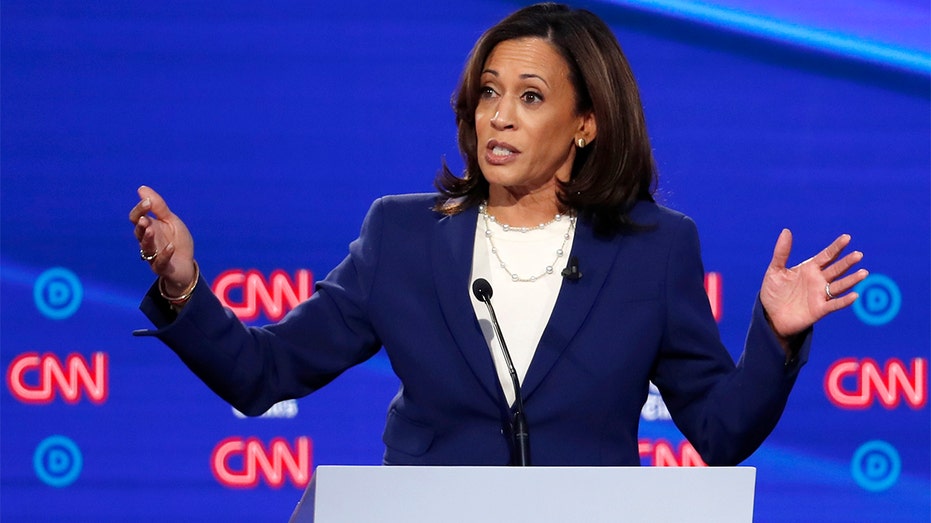
Kamala Harris
With a $10 trillion price tag, the California senator has one of the most expensive proposal to address climate change, second only to Sanders. The campaign did not specifically address how the plan would be paid for but pointed to several ways to raise revenue, including creating a pollution fee and eliminating fossil fuel subsidies.
She vows to:
- Reach net-zero emissions by 2045, with "progressive year-on-year benchmarks that target individual sectors," including zero-emission heavy-duty vehicles and vehicle fleets by 2030, and zero-emission vehicles by 2035
- Make a massive $250 billion investment over the next five years in drinking water infrastructure and ensure that climate rules benefit low-income communities
- Hold fossil fuel companies accountable by ensuring the EPA and Department of Justice have the necessary resources to pursue cases against them, increase penalties for companies that don't comply with federal laws and expand access to the courts for Americans "harmed by pollution"
- Immediately halt fossil fuel leases on federal lands and waters




















